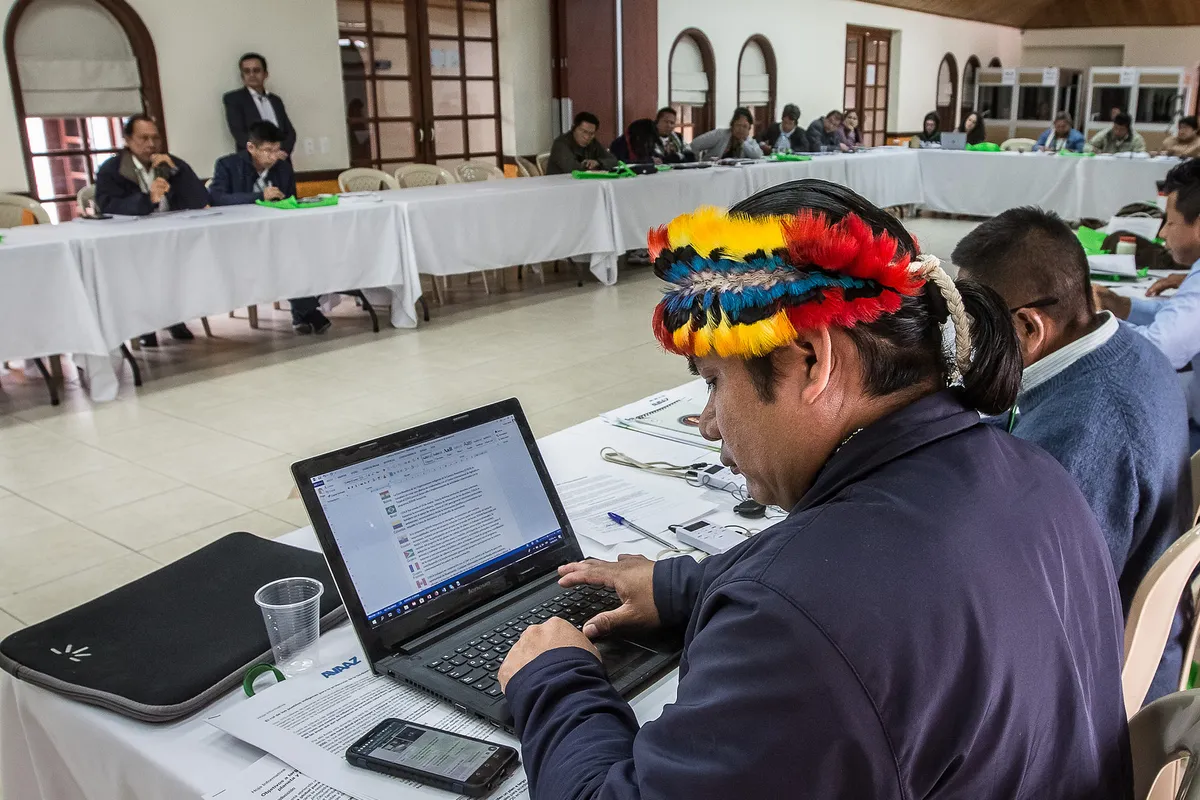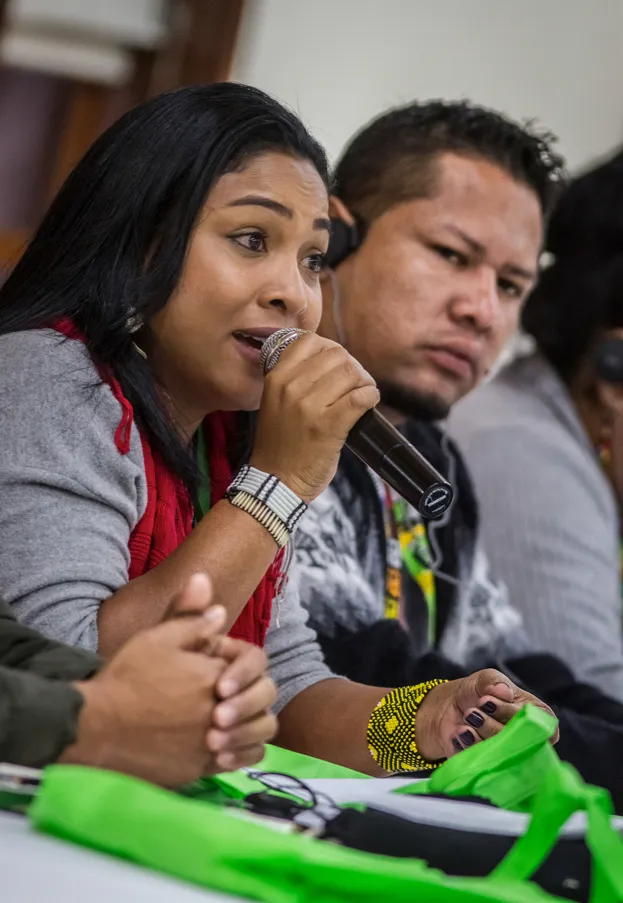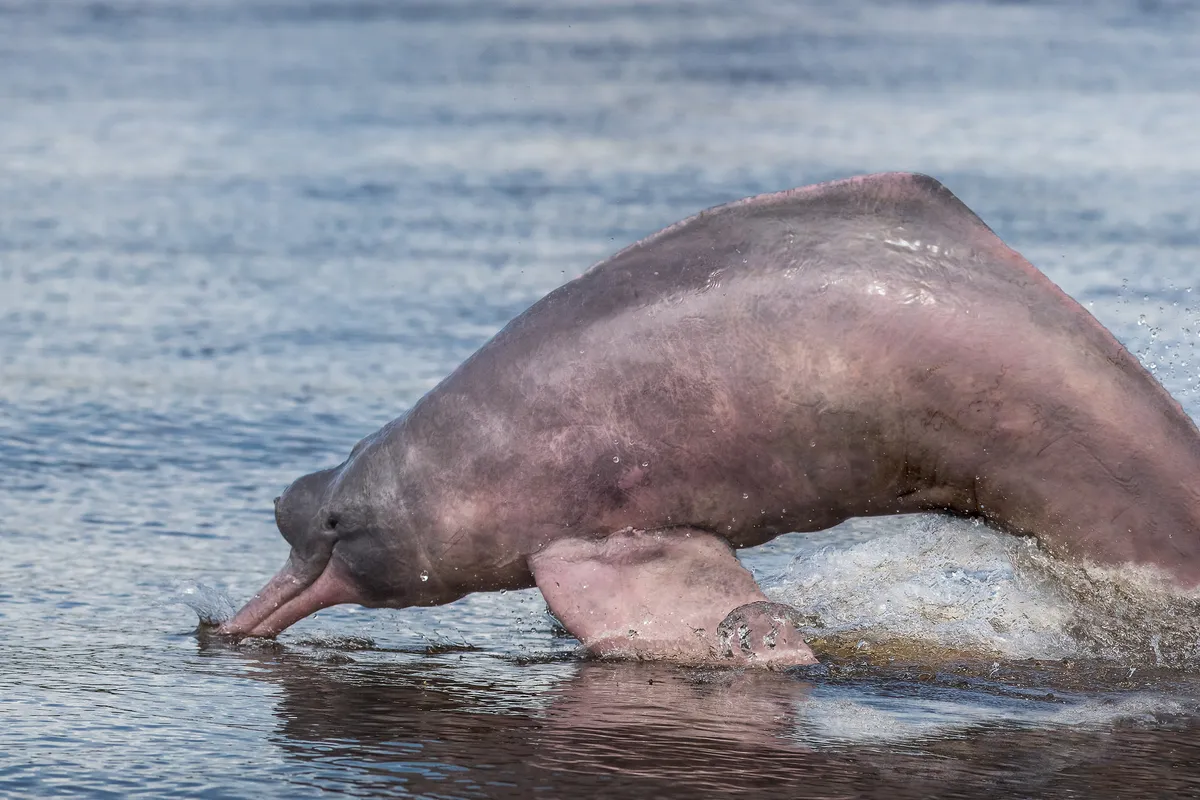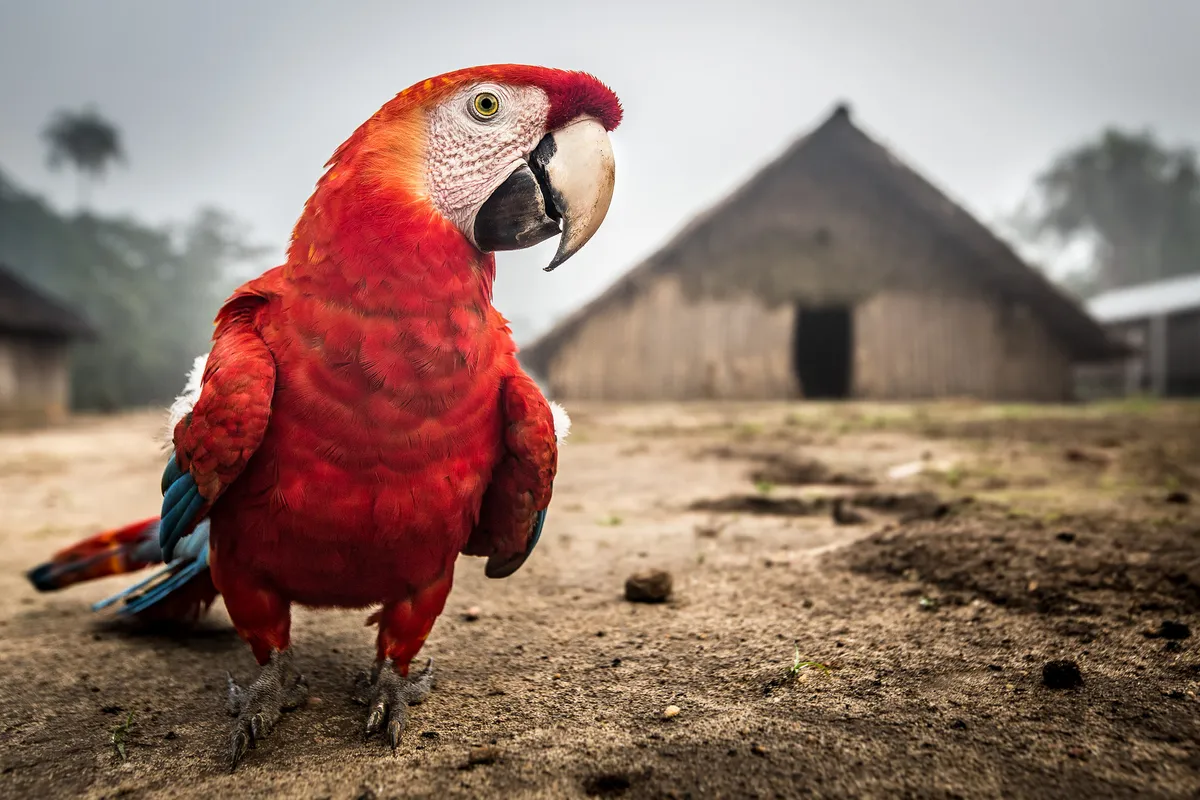A historic four-day summit in Bogotá, Colombia, attended by leaders and elders from major indigenous federations across the Amazon basin, has led to a declaration aimed at governments and international bodies, ahead of the UN biodiversity conference in November.
In the declaration, world leaders are called upon to “unite forces” to protect half the planet, and to tackle the crisis affecting the Amazon rainforest, the world’s largest tropical rainforest.
"For us the Amazon basin is sacred,” says Tuntiak Katan, vice president of the Coalition of Indigenous Organisations of the Amazon Basin (COICA).
“Some say it's the lungs of the world, for us it is the heart of the world, and in this heart we find an immense concentration of biodiversity and cultural diversity. Yet it's here that they're pushing ahead with more extractive and industrial activities."


The indigenous leaders came from eight of nine countries that contain Amazon rainforest: Bolivia, Brazil, Colombia, Ecuador, French Guiana, Peru, Suriname and Venezuela.
During the summit, the leaders discussed the options for preserving and protecting the biodiversity, cultures and sacredness of the Andes-Amazon-Atlantic Corridor, a vast territory that covers almost 200 million hectares.

"I think this initiative is important, we indigenous peoples share the same thinking about the protection of biodiversity,” says Wilma Mendoza Miro, from the Confederation of Indigenous Peoples of Bolivia. “Today we have many challenges, but the shared vision of this corridor unites us and gives us hope."



